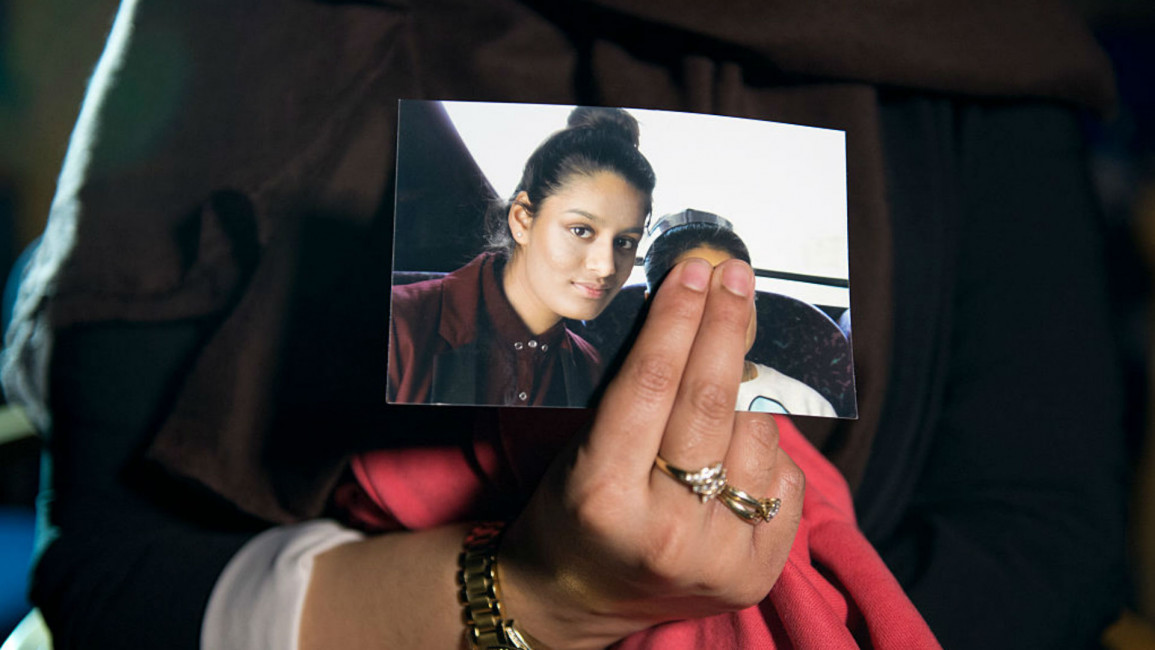
The dilemma of Shamima Begum
I watched in awe at the video footage of the Shamima Begun interviews. She seems like a young woman that is more troubled emotionally than the words she uses - her slow speech and contradictory statements, how easily she was led by journalists to make statements that would be detrimental to her wish to return to the UK.
I can't help feeling that she must be having mental health problems brought on by what she has been through. Post-traumatic stress disorder is more than likely. Life-changing, from what she first perceived to be a perfect religious life in the caliphate to losing two infants and now with her third child stranded in a refugee camp and stripped of her British citizenship.
It does make me wonder how this all happened. Travelling to Syria with two of her friends and joining the Islamic State group at 15. It transpires that there was a fourth girl involved who went to Syria two months before the three friends left. Sharmeena Begum, also 15 at the time and no relation to Shamina, had a difficult private life, losing her mother to cancer and her father remarrying soon after. It was clearly a difficult time for Sharmeena emotionally and she must have been vulnerable to IS propaganda. She simply felt she had nothing to lose.
The police apparently interviewed the three girls that followed Sharmeena to Syria about the disappearance of their friend - but apparently the Bethnal Green Academy never informed the parents as to why the police wanted to speak with the young girls, nor mentioned to them that a "missing persons" case had become an issue about radicalisation.
Twitter Post
|
This is surprising, since Tower Hamlets Council apparently have said that they have a Prevent Officer in every school in the borough. It seems as though the parents had no clue what their daughters were thinking and going to do. The parents can perhaps be blamed for not monitoring their daughter's online activities. In her recent interviews, Begum seemed not overly concerned with the distress she had caused her parents.
Villain or victim?
On the one hand it takes a lot of conviction to leave her family and take herself to Syria. Once there she seemingly quickly settled into the IS lifestyle, got married and became a "housewife" and supported - and therefore was complicit in - the actions of IS fighters. She seems not to regret her actions. She even said she saw a decapitated head in a bin and thought it had been deemed OK in the name of Islam.
This perverse interpretation of Islam was indoctrinated into her in London and was no doubt cultivated in Syria. If she returned to the UK, could it be possible she could pose a threat by her influence or actions to the security of the nation? Clearly Home Secretary Sajid Javid thinks so.
On the other hand, is she a victim of grooming by the IS propaganda machine? Did she get adequate safeguarding and protection at school? Perhaps alarm bells should have gone off in the minds of her teachers and Prevent officer when her friend disappeared two months earlier.
Once in Syria, was she effectively a prisoner of the IS machine and will have had little choice but to "marry" and fall pregnant as a well-behaved "housewife". Her family claims she is a victim of Stockholm Syndrome - a condition that causes hostages to develop a psychological alliance with their captors as a survival strategy during captivity. For these reasons perhaps she should be allowed to come home and get therapy and be rehabilitated.
The British state can learn from her experience and use what they learn to rehabilitate others - but this is only possible if she is allowed back.
This is the dilemma.
The New Arab reader Dr Ron Baise has been a dental practice owner in London since 1985 and is now a fully private dentist. He has been a post-graduate teacher and has published articles on dental matters.
Follow us on Twitter: @The_NewArab




